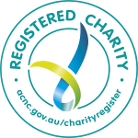PURPOSE
This policy is founded upon HSA Australia’s commitment to accountability and transparency.
The purpose of this policy is to provide a supportive work-relationship environment where misconduct within or by HealthServe Australia can be raised without fear of retribution.
This is achieved by:
- encouraging the reporting of serious misconduct
- providing protected misconduct reporting alternatives to remove inhibitions that may impede such disclosures
- establishing procedures that enable:
- protection for those that make serious misconduct disclosures
- independent internal inquiry/investigation of disclosures made
- resolution of the issue(s) identified This policy is guided by the HAS Whistle-blower Protection Policy
-
APPLICATION
This policy applies to directors, employees, volunteers, contractors and consultants. It also applies to a person or organisation with a relationship with HealthServe Australia who reports serious misconduct within or by a HealthServe Australia employee/s.
-
DEFINITIONS
3.1 Definitions for this policy
Whistleblowing is:
The disclosure by or for a witness, of actual or suspected misconduct in an organisation that reveals fraud, corruption, illegal activities, gross mismanagement, malpractice or any other serious wrongdoing.
A Whistle-blower is:
A person who reports serious misconduct in accordance with this policy
3.2 Descriptions of misconduct for this policy
Misconduct includes behaviour that:
- is fraudulent or corrupt [as defined under the UA Fraud and Corruption Policy]
- is illegal
- is unethical, such as acting dishonestly; altering company records; wilfully making false entries in official records; engaging in questionable accounting practices; or wilfully breaching HAS Australia’s code of conduct of the ACFID Code of Conduct
- is potentially damaging to HAS Australia, such as maladministration
- is seriously harmful or potentially seriously harmful to a HealthServe Australia employee or volunteer such as deliberate unsafe work practice or wilful disregard to the safety of others in the workplace
- may cause serious financial or non-financial loss to HAS Australia; or damage its reputation; or be otherwise seriously contrary to HAS Australia’s Whistle-blowing policy
- involves any other kind of serious impropriety including retaliatory action against a whistle-blower for having made a wrongdoing disclosure
-
POLICY STATEMENT
HealthServe Australia is committed to the highest standards of legal, ethical and moral behaviour. HealthServe Australia recognises that people who have a working relationship with HealthServe Australia are often the first to realise there may be concerns. However, for fear of appearing disloyal or concern about being victimised or the subject of other reprisals, they may be concerned about reporting this misconduct. No person should be personally disadvantaged for reporting a wrongdoing. Not only may this misconduct be illegal, but it may directly oppose the values and mission of HSA Australia. HealthServe Australia is committed to maintaining an environment where legitimate concerns are able to be reported without fear of retaliatory action or retribution.
When a person makes such a disclosure they are entitled to expect that:
- their identity remains confidential at all times to the extent permitted by law or is practical in the circumstances,
- They will be protected from reprisal, harassment or victimisation for making the report,
- Should retaliation occur for having made the disclosure then HealthServe Australia will treat it as serious wrongdoing under this Policy.
-
PROCEDURES
5.1 All HealthServe Australia staff will be made aware of this policy and their responsibilities to report wrongdoing to the Executive Officer. It is the responsibility of the Executive Officer to ensure all staff are adequately trained in understanding, identifying and (where possible) mitigating any activity that may breach the definitions of fraudulent or corrupt behaviour
5.2 All HSA stakeholders will be notified of the Whistle-blower policy via the HealthServe Australia website.
5.3 A whistle-blower should report instances of, or suspicions of misconduct to Contact Point 1: the HealthServe Australia Executive Officer. Reports must be made in good-faith and be as thorough as is possible. False of malicious allegations may result in disciplinary actions.
5.4 Where it is not possible or appropriate to report suspicion of misconduct to the Executive Officer (Contact Point 1), reports should be raised directly to the Chair of the Board(Contact Point 2)
5.5 If the report is lodged with Contact Point 1, the officer will contact the chair of the Board. Both parties will agree on the appointment of an appropriate delegate, who is not implicated in the report, to lead the investigation.
5.6 If the report is lodged with Contact Point 2, the officer will contact the chair of the business development committee. Both parties will agree on the appointment of an appropriate delegate, who is not implicated in the report, to lead the investigation.
5.7 The individual who leads the investigation will be referred to as the Whistle-blower Protection Officer and should be either a
- qualified internal investigator who is independent of the area where the wrongdoing is alleged to have occurred, or
- qualified external investigator independent of HealthServe Australia where considered necessary
5.8 The responsibilities of the appointed investigator include the assurance that action taken in response to the inquiry is appropriate to the circumstances and retaliatory action will not been taken against the person who made the disclosure.
5.9 Once the Whistle-blower Protection Officer is appointed, the Contact Point will notify the Chief Executive the details and process of the investigation to be undertaken.
5.10 The investigator has direct, unfettered access to independent financial, legal and operational advisers as required, and a direct line of reporting to the relevant Contact Point, as may be required to satisfy the objectives of this Policy.
5.11 The Whistle-blower Protection Officer must keep the Contact Point regularly informed of the investigation progress.
5.12 The Whistle-blower Protection Officer is also responsible for keeping the Whistle-blower informed of the progress and outcomes of the inquiry/investigation subject to considerations of privacy of those against whom the allegations have been made.
5.13 The internal investigator must have internal independence of line management of the area affected by the wrongdoing disclosure. The internal investigator is authorised to apply the powers granted by the Audit & Risk Committee. The investigator may second the expertise of other officers in HealthServe Australia to assist in the investigation and may seek the advice of internal or external experts as required.
5.14 Whistle-blower A person considering making a whistle-blower report is obliged to act in good faith and have reasonable grounds for believing the disclosure is reportable wrongdoing.
-
OBLIGATIONS
A Whistle-blower must provide information to assist any inquiry/investigation of the wrongdoing disclosed. Even though a whistle-blower may be implicated in the wrongdoing they must not be subjected to any actual or threatened retaliatory action or victimisation in reprisal for making a report under this policy. It is important to note that making a report may not protect the whistle-blower from the consequences flowing from involvement in the wrongdoing itself. A person’s liability for their own conduct is not affected by their reporting of that conduct under this policy. However active cooperation in the investigation, an admission and remorse may be taken into account when considering disciplinary or other action.




